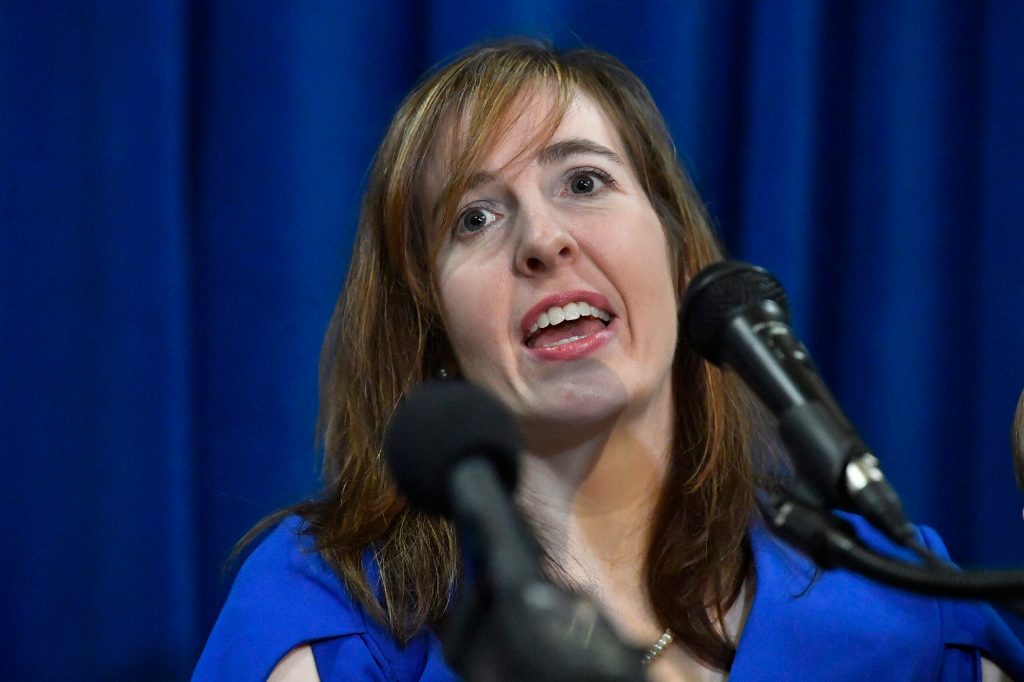Funding dispute stalls Kentucky law meant to help adults caring for young relatives
Published 3:37 pm Friday, October 25, 2024
FRANKFORT — Child welfare advocates cheered when Kentucky lawmakers passed a bill last spring to support adults willing to step up at desperate times to care for young relatives who endured suspected abuse or neglect at home.
Their joy has turned to frustration as the new law, which was supposed to take effect in July, became entangled in a funding dispute that has stalled its implementation. The underlying issue is whether the state can get the millions of dollars needed to carry out the law’s intent — enabling relatives who take temporary custody of children to later become eligible for foster care payments.
Kentucky Auditor Allison Ball said Wednesday her office intends to answer that question.
“We’re going to do everything that we can to figure out the facts that you need to know, and the facts that Kentucky needs to know, so this can be implemented,” Ball told a legislative panel.
An estimated 59,000 Kentucky children are in what’s commonly called kinship care — when a child is living with relatives or close friends instead of their parents.
The measure is intended to fix what advocates say was a flaw in the support system. The new law gives relatives considerably more time to apply to become foster parents for their young relatives, and thus eligible for foster care payments to help support the children already in their care.
“The intent of this bill is to give a caregiver time to take care of the immediate needs of the child and then some time to research and learn about placement decisions,” said Norma Hatfield, president of Kinship Families Coalition of Kentucky.
The state Cabinet for Health and Family Services praised the bill for seeking to help children in bad situations be placed with close family and friends. But Democratic Gov. Andy Beshear’s administration says it brought up its annual price tag — approximately $20 million — well before the bipartisan measure won final passage in late March. Beshear signed the measure but warned that lawmakers still had not approved the necessary funding. The administration says it can’t implement the law without that money.
“Lawmakers had the opportunity to deliver the funding during the session but chose not to,” Beshear spokesperson Crystal Staley said in a statement Wednesday. “It is simple: The state cannot implement programs and policies if we don’t have the funding needed to do so.”
Republican state Sen. Julie Raque Adams, the measure’s lead sponsor, has said she thought changes to the bill had resolved funding concerns. Now, as the dispute deepens, she and other lawmakers have urged the cabinet to pursue federal funding or tap into existing state funding sources.
“For some time, the legislature has voiced concerns and expressed skepticism over this failure to act,” Adams said Wednesday. “Now, with a much-needed independent inquiry underway, we hope it will shed light on the facts.”
Republican state Rep. Samara Heavrin lashed out at the Beshear administration for the delay in carrying out the law, calling it troubling and frustrating. She said she hopes the auditor’s review resolves the delay.
The auditor told lawmakers that her office will look into whether state or federal dollars are available to put the new law into action. Ball, a Republican, said she wants to make it a collaborative process with the Democratic governor and the cabinet.
Democratic state Rep. Sarah Stalker raised the prospect of lawmakers reopening the current two-year state budget to provide the funding, if necessary, to implement the law.
“I am 100% in support of funding this,” she said. “This is incredibly important.”
The delay has left child welfare advocates increasingly frustrated, just months after they hailed the measure’s passage as a victory for thousands of kinship care families in Kentucky.
“We are left wondering, is this yet another letdown by our state leaders to prioritize and support our kids in kinship care?” Terry Brooks, executive director of Kentucky Youth Advocates, said during the summer.
Hatfield, who is raising two of her grandchildren, wrote in an op-ed that was widely distributed in Kentucky in August that the delay felt like games of Whac-A-Mole, “where each event leads to another meeting with something new, but without tangible results.”
On Wednesday, she welcomed the inquiry by the auditor’s office.
“There are a lot of families, the longer we wait, that are missing opportunities for more long-term support that deserve it,” Hatfield told lawmakers.


